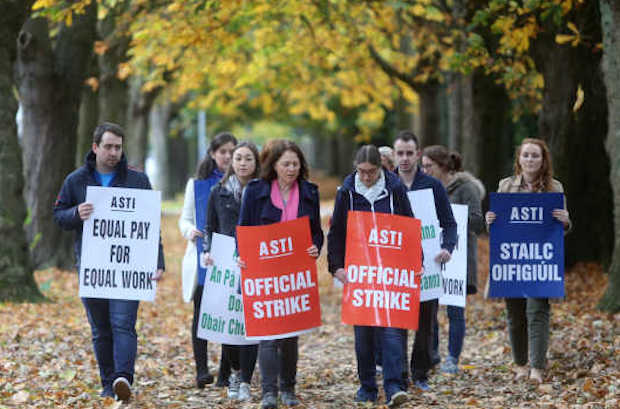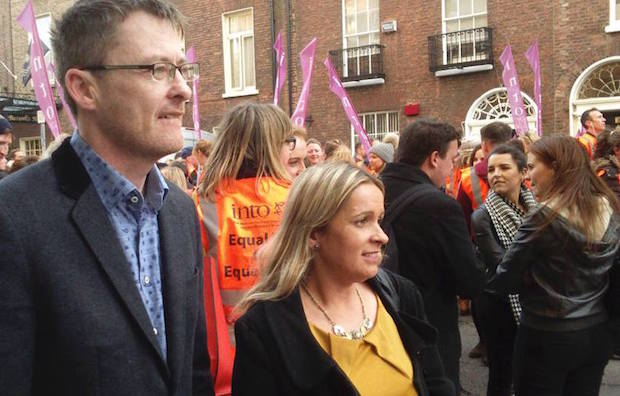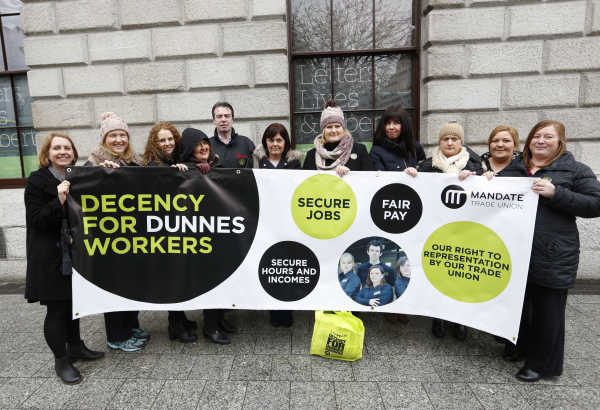2 December 2016
We can’t afford a pay rise? We can’t afford a low-income and high-cost society

How can we stand over a situation where workers aren’t able to meet basic needs?
David Cullinane TD is the Sinn Féin spokesperson on Public Expenditure & Reform and is also the all-Ireland spokesperson on Workers’ Rights
‘THERE’S NO cost-of-living crisis in Ireland because the inflation figure was low,’ RTÉ said recently.
It was just another example of how out of touch the mainstream media is when it comes to the everyday lives of people.
The reality is that significant rises in the cost of health, housing, education, childcare and transport have put enormous pressure on Irish households. No amount of soft-focus puff pieces by RTÉ or anyone else is going to change that.
The other fact that is constantly ignored is that we live in a low-wage economy.
The majority of jobs pay less than €28,000 a year, with two-thirds of all people earning less than €40,000.
The average house price in Dublin is now €332,000 – over 12 times the annual salary for the majority of Irish workers.
The past three years have seen rents go through the roof, with knock-on effects in terms of the housing crisis and increased levels of homelessness.
And in all of this we have the usual suspects trotted out on the national airwaves to say that the one thing we cannot afford at this moment is a pay rise.
Well, the one thing we cannot have is a low-income and high-cost economy.

● David Cullinane and Sinn Féin Education spokesperson Carol Nolan TD at the teachers’ unions rally
Nobody should have any concerns about workers having a living wage.
How can we stand over a situation where we have workers who don’t have the ability to meet basic needs?
I don’t believe it is sustainable that we can build an economy on low pay.
There are many people who are characterised as “the working poor” – who put in a week’s work but can’t afford to pay basic bills, who don’t have access to public services, and who don’t have the quality of life that they should have.
If people have access to decent public services – such as universal childcare and healthcare – that would lessen the need for cost-of-living increases.
These moves can only happen by having fair, just and progressive taxation and reinvesting into core services.
We should not forget that there is still a gender pay gap in this state of just under 14% despite equal pay legislation dating back to the 1970s.
Certainly if you looked to the ranks of the Dunnes Stores workers striking recently you couldn’t but be struck by the fact that very large numbers of them are women.

Women workers are struggling to making ends meet.
Up to 50% of women earn an average income of €20,000 or less.
The next 12 months will see ordinary people and trade unions willing to truly represent their members build on the successes of this year and win the pay rises they deserve.
Workers’ rights, a living wage and decent public services – these are the cornerstones of a stable society.
And each and all of them is worth the fight.
Follow us on Facebook
An Phoblacht on Twitter
Uncomfortable Conversations

An initiative for dialogue
for reconciliation
— — — — — — —
Contributions from key figures in the churches, academia and wider civic society as well as senior republican figures





